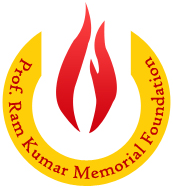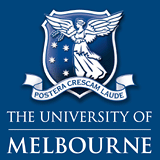Keynote Presentations
CIKM 2015 will feature invited keynote addresses from three outstanding researchers.

Jaime Teevan, Microsoft
Slow Search: Improving Information Retrieval Using Human Assistance
We live in a world where the pace of everything from communication to transportation is getting faster. In recent years a number of "slow movements" have emerged that advocate for reducing speed in exchange for increasing quality. These include the slow food movement, slow parenting, slow travel, and even slow science. We propose the concept of "slow search," where search engines use additional time to provide a higher quality search experience than is possible given conventional time constraints. While additional time can be used to identify particularly relevant results within the existing search engine framework, it can also be used to create new search artifacts and enable previously unimaginable user experiences. In this talk I focus on how search engines can make use of additional time to employ a resource that is inherently slow: other people. Using crowdsourcing and friendsourcing, I will highlight opportunities for search systems to support new search experiences with high quality result content that takes time to identify.
Jaime Teevan is a Senior Researcher at Microsoft Research and an Affiliate Assistant Professor at the University of Washington. Working at the intersection of human computer interaction, information retrieval, and social media, she studies people's information seeking activities. Much of her research focuses on the social and temporal context of information use, and she developed the first personalized search algorithm used by Bing. Her accomplishments have been honored with Technology Review (TR35) Young Innovator and Borg Early Career awards. She has published numerous technical articles, including several books and best papers. She received a PhD from MIT and a BS in Computer Science from Yale University.

Andrew Tomkins, Google
Large-Scale Analysis of Dynamics of Choice among Discrete Alternatives
The online world is rife with scenarios in which a user must select one from a finite set of alternatives: which movie to watch, which song to play, which camera to order, which website to visit. In this talk, I’ll give an overview of this class of problems and some established solutions, and I’ll describe some recent work in large-scale analysis of this data type. I’ll begin with a discussion of choice among restaurants, taking into account factors of physical location. I’ll then discuss the dynamics of repeated consumption of the same item, which has a long history of interest to marketers and psychologists but is less well-studied in computer science. Finally, I’ll move to a more complex scenario of sequential consumption of a range of items, and will show how the theory of discrete choice can be incorporated into the theory of Markov processes, requiring a new algorithmic approach.
Andrew Tomkins joined Google Research in 2009, where he serves as an engineering director working on geo data analysis and machine learning. His earlier research focused on measurement, modeling, and analysis of content, communities, and users on the World Wide Web. Prior to joining Google, he spent four years at Yahoo! serving as chief scientist of search, and eight years at IBM's Almaden Research Center, where he served as chief scientist on the WebFountain project. Andrew has authored over 100 technical papers and 60 issued patents. He received Bachelors degrees in Mathematics and Computer Science from MIT, and a PhD in CS from Carnegie Mellon University.
Andrew’s presentation will also open the Conference’s Industry Track.

Xiaofang Zhou, University of Queensland
Making Sense of Spatial Trajectories
Spatial trajectory data is widely available today. Over a sustained period of time, trajectory data has been collected from numerous GPS devices, smartphones, sensors and social media applications. How do we manage them? What values can a business derive from them, and how? Due to their very large volumes, the nature of streaming itself, highly variable levels of data quality, as well as many possible links with other types of data, making sense of spatial trajectory data is one of the crucial areas for big data analytics. In this talk, I will introduce this increasingly important research area in the context of new applications, new problems and new opportunities. I will discuss recent advances in trajectory data management and trajectory mining, from their foundations to high performance processing with modern computing infrastructures.
Xiaofang Zhou is a Professor of Computer Science at The University of Queensland, Australia, leading the Data and Knowledge Engineering (DKE) Group at UQ. His research focus is to find effective and efficient solutions for managing, integrating and analyzing very large amount of complex data for business, scientific and personal applications. He has been working in the area of spatial and multimedia databases, data quality, high performance database systems and data mining. He was a Program Committee Chair for IEEE ICDE 2013, and a General Chair of ACM Multimedia 2015. He has been an Associate Editor of The VLDB Journal, IEEE Transactions on Knowledge and Data Engineering, IEEE Transactions on Cloud Computing, World Wide Web Journal, Distributed and Parallel Databases, and IEEE Data Engineering Bulletin. He is the current Chair of IEEE Technical Committee on Data Engineering (TCDE).














